The following is a selection of books that have been added to the library over the past year. Members may borrow these from the library by using the NZNO library enquiry form on the library’s web-page.
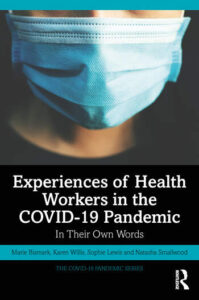 |
Experiences of health workers in the COVID-19 pandemic: in their own wordsBismark, M., Willis K., Lewis, S., & Smallwood, N. (2022). Routledge. 246pp Based on more than 9000 responses to a survey of participants from all areas of the health sector, from intensive care doctors to hospital cleaners to aged care nurses, and from large metropolitan hospitals to rural primary care practices. Important for anyone interested in the experiences of health-care workers, and the psychological, organisational, health-care policy, and social challenges of the COVID-19 pandemic. Kaitiaki interviews lead author Marie Bismark here. |
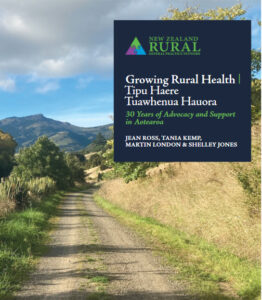 |
Growing rural health — Tipu haere tuawhenua hauora: 30 years of advocacy and support in AotearoaRoss, J., Kemp, T, (Ngā Mahanga o Tairi, Taranaki), London, M., & Jones, S. (2022). Hauora Taiwhenua Rural Health Network. Backgrounds the formation of the New Zealand Rural General Practice Network 30 years ago and describes its transition into the Hauora Taiwhenua Rural Health Network. Reflects on the challenges and rewards of working in rural health to inform future service provision and workforce planning. |
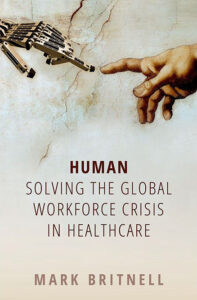 |
Human: Solving the global workforce crisis in healthcareBritnell, M. (2019). Oxford University Press. Addresses the global health workforce issues facing international health systems. Profiles 10 countries around the world and explores various approaches to solving the workforce deficit. The author argues for gender equality for health-care workers, increased support for them, and more sophisticated thinking on the relationship between humans and technology. |
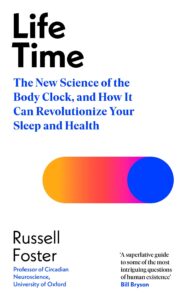 |
The new science of the body clock, and how it can revolutionize your sleep and healthFoster, R. (2022). Penguin Life. Explains the relationship between sleep and the circadian rhythm, and how the biological clock governs when we should eat, sleep, work, and take medication. Explores the implications of shift work for health. “In the twenty-first century, we increasingly push our daily routines into the night, carrying out work, exercise and our social lives long after dark. But we have forgotten that our bodies are governed by a 24-hour biological clock which guides us towards the best time to sleep, eat and think. “New science has proven that living out of sync with this clock is not only disrupting our sleep, but leaving us more vulnerable to infection, cancer, obesity, type 2 diabetes, heart disease and mental illness.” |
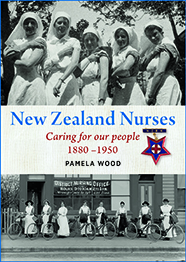 |
New Zealand nurses: Caring for our people, 1880-1950Wood, P. (2022). University of Otago Press. 376pp. Examines the stories of individual nurses during the emergence of the nursing profession in New Zealand. Traces the development of a distinct New Zealand nursing culture from its British colonial origins in the 1880s. Examines the nursing cultures that emerged indifferent settings and circumstances: from hospitals to homes, rural backblocks to Māori settlements, and from war and disaster zones to nursing through a pandemic. |
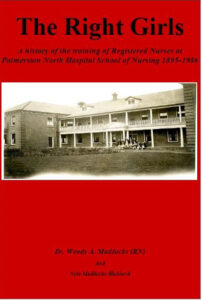 |
The right girls: A history of the training of Registered Nurses at Palmerston North Hospital School of Nursing 1895-1986Maddocks, W., & Maddocks-Hubbard, N. (2022). Covers the education of nurses at the hospital from the inception of nurse training there in 1985 through to the last class of graduates in 1986. Cross references Palmerston North nurses who served in WWI and WWII, profiling several of them. Selects students from each decade thereafter to profile. |
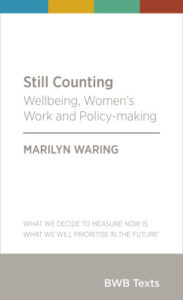 |
|
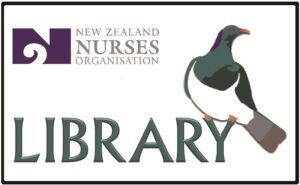 Other library services
Other library services
Among the many services the NZNO library offers members is online access to articles from Kaitiaki Nursing New Zealand from 2003 onwards. These can be accessed, as can a variety of member-only databases, via the online databases page on the library webpage.
Contact your library:
Website: www.nzno.org.nz/resources/library
Phone: 0800 28-38-48
Email: [email protected]
Heather Woods is the NZNO librarian and records manager.
Amanda Oztzen works at the NZNO library.



